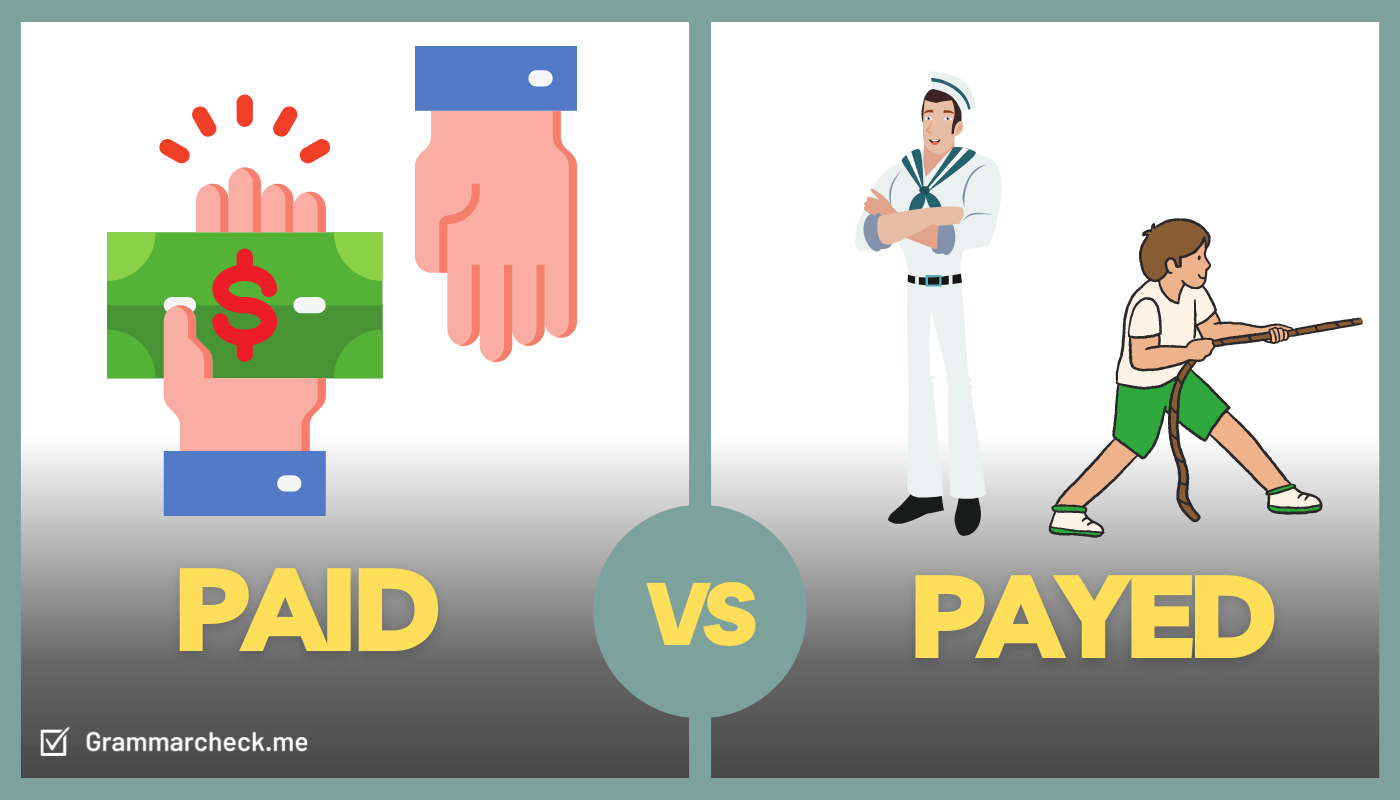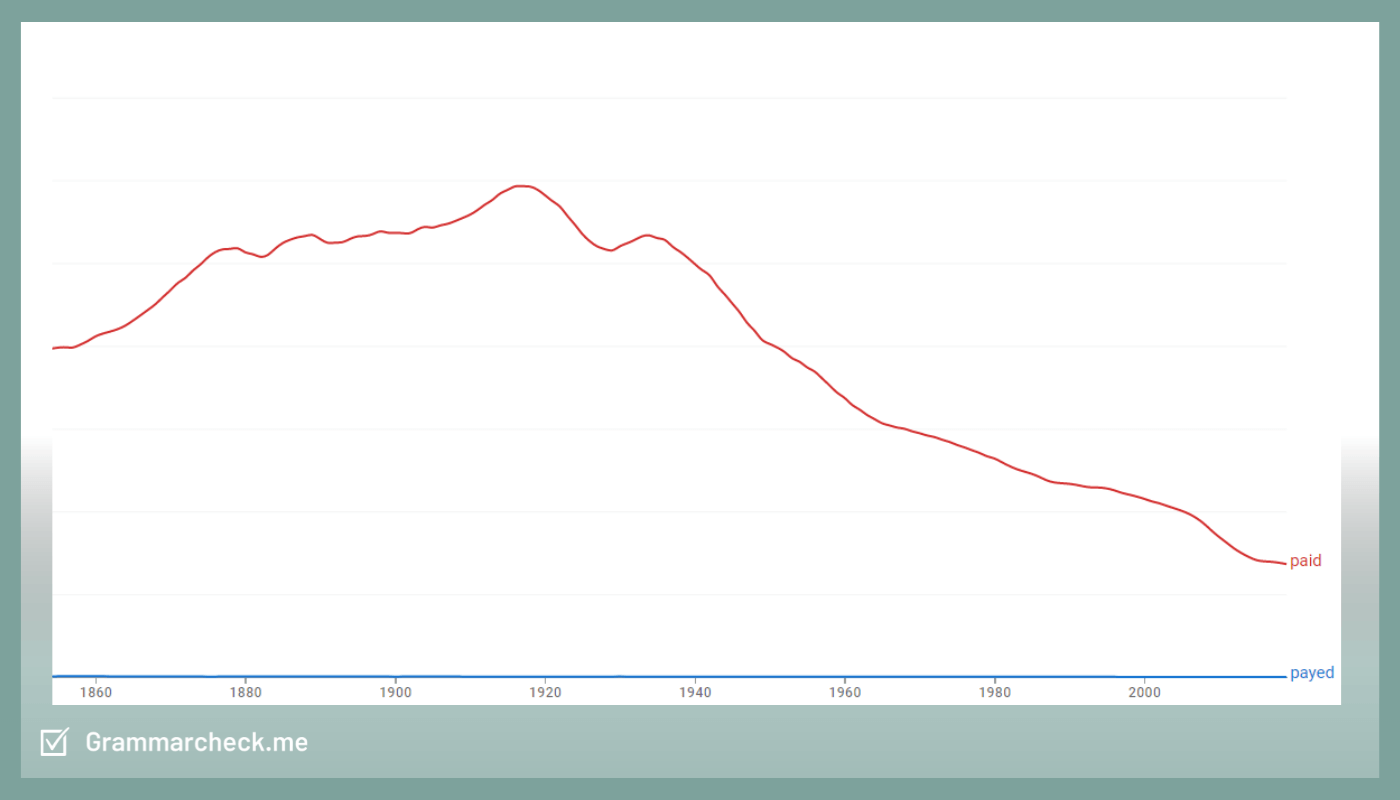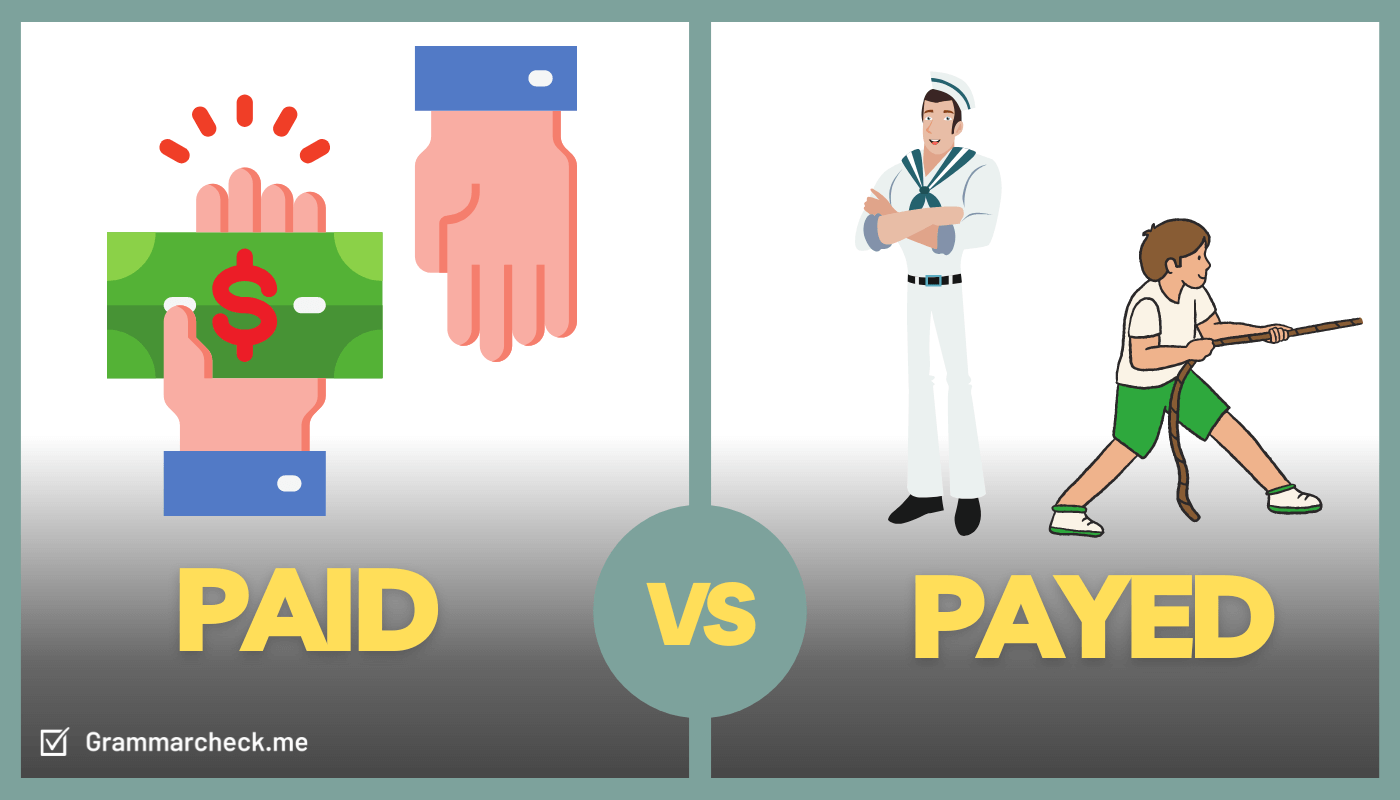In a previous article, we broke down the difference between the phrases Paid & Payed Attention. In this post, we will focus specifically on the difference between the past tense verbs paid and payed! Experienced and new writers alike get these two words confused because of their similar pronunciation. However, you will learn that these two words have different meanings!
Is There A Difference Between Payed vs Paid?

Takeaway: Paid & payed do NOT have the same definition. Payed is most commonly used to describe the process of a sailor patching a boat. Paid is most commonly used to discuss transferring money or economic value.
- Paid – Past tense form of the verb pay. To get paid is to be given money for providing a product or service.
- Payed – Verb used to describe the process of a sailor making a boat seaworthy. More specifically, this entails coating or patching the boat with waterproof materials.
Although these words sound similar, just like the words lives & lifes, they are NOT the same. Let’s explore how to use both of these terms in our writing.
How To Use The Word Payed
Payed is rare word that is not often used in modern conversation or published writing. As we already discussed, this irregular verb has two main meanings.
- In the nautical sense, payed means for a sailor to prepare the boat to prevent leaks out at sea.
- Payed can also be used to describe the process of letting out more chain, rope, or other material. It is the process of giving more slack.
“My dog needed more room to run so I payed out more leash so he could move freely.”
As you can see, the word payed has two different meanings so you need to pay close attention to the context of your sentences to get it right! Just like the words Stoked & Stoaked, similar words do NOT always have the same meaning.
Sentence Examples
Here are some example sentences that illustrate how to use the rare term payed in your writing.
- The sailor payed the boat in preparation for a long sea journey.
- The sailors had not payed the boat properly and now its sinking.
- My dog needed some more room to run so I payed out more rope.
However, just like we saw in our analysis of “how you been meaning“, even the smallest spelling changes can make a large difference!
How To Use The Word Paid
The word paid is very popular in the English language. In fact, most of us use this word on a regular basis in our daily conversation and writing.
Paid refers to transferring money for services rendered or products delivered. Here are some of the most common conjugations of the word paid.
- Present Perfect – “I/you/he/we have paid the bill”
- Future Perfect – “I/you/he/we will have paid the bill”
- Past Participle Form – “I/you/he/we would have paid the bill”
These are a few of the most popular ways writers use the past participle forms of pay. Be sure to chose the correct past tense form! Just like with the phrase “Time Flies“, there are many wants to conjugate different verbs!
Sentence Examples
Here are example sentences to demonstrate how to use paid correctly in your writing.
- I paid for the coffee with my credit card.
- Have you paid your rent yet?
- She paid cash for the new car.
- They paid $100 for the ticket.
- By tomorrow at noon, I will have paid you back in full for the loan.
Which Is More Popular?

By reviewing Google’s N Gram data you can see that the word payed do not have significant modern usage. It is most commonly used amongst sailors and boating communities. However, it does not have mainstream usage.
But just like we learned when analyzing the difference between the words Ol’ vs Old, things can change. Words come in and out of popularity all the time. So who knows, maybe by 2040 payed and paid will both be more popular vocabulary terms!
Frequently Asked Questions
If you are referring to transferring money, the correct form is paid. Payed is a common misspelling that new writers use.
You might say, “The boat’s Captain payed the boats hull in preparation for their trip across the Atlantic ocean.”
The past tense form of pay out is paid out. For example, “Mark paid out all his debts in full.”
Paid tribute is the correct spelling. For example, “I went to my neighbors funeral & paid tribute to his amazing life.”
The Bottom Line
By now you should have a great understanding of the difference between payed vs paid. New writers often confuse these terms because they are pronounced similarly. However, as you have just learned they have different meanings. If you are referring to transferring money, use the past tense verb, paid. If you are struggling with this grammar rule, consider using our Check Grammar tool for FREE to make things easy for you!

